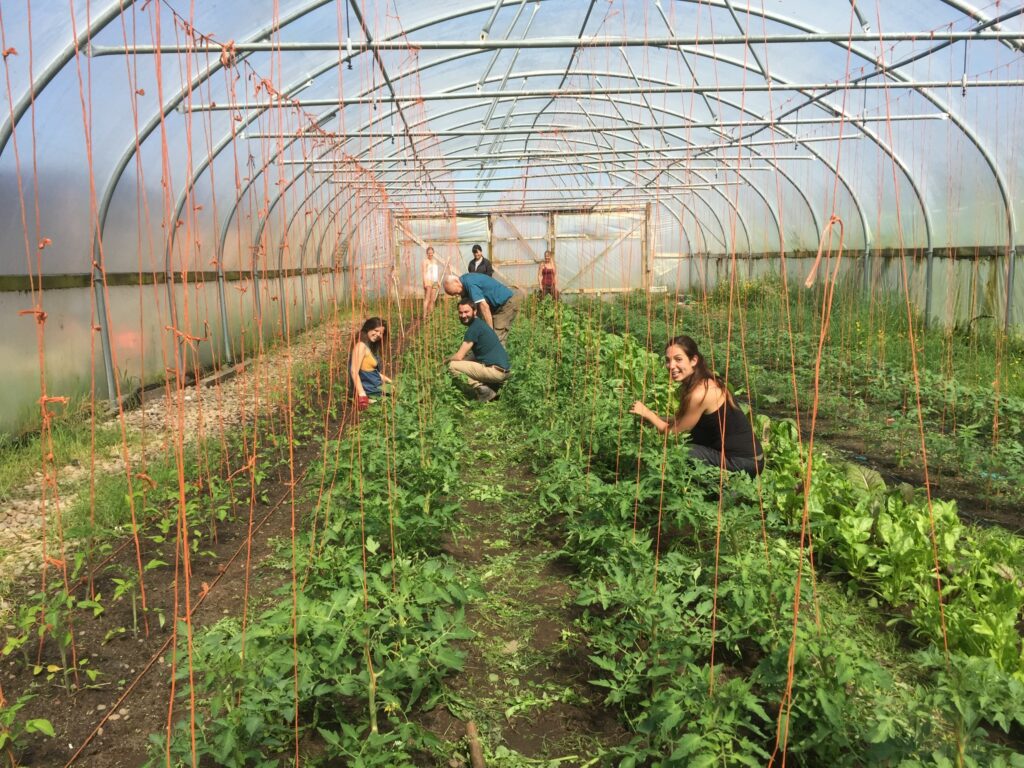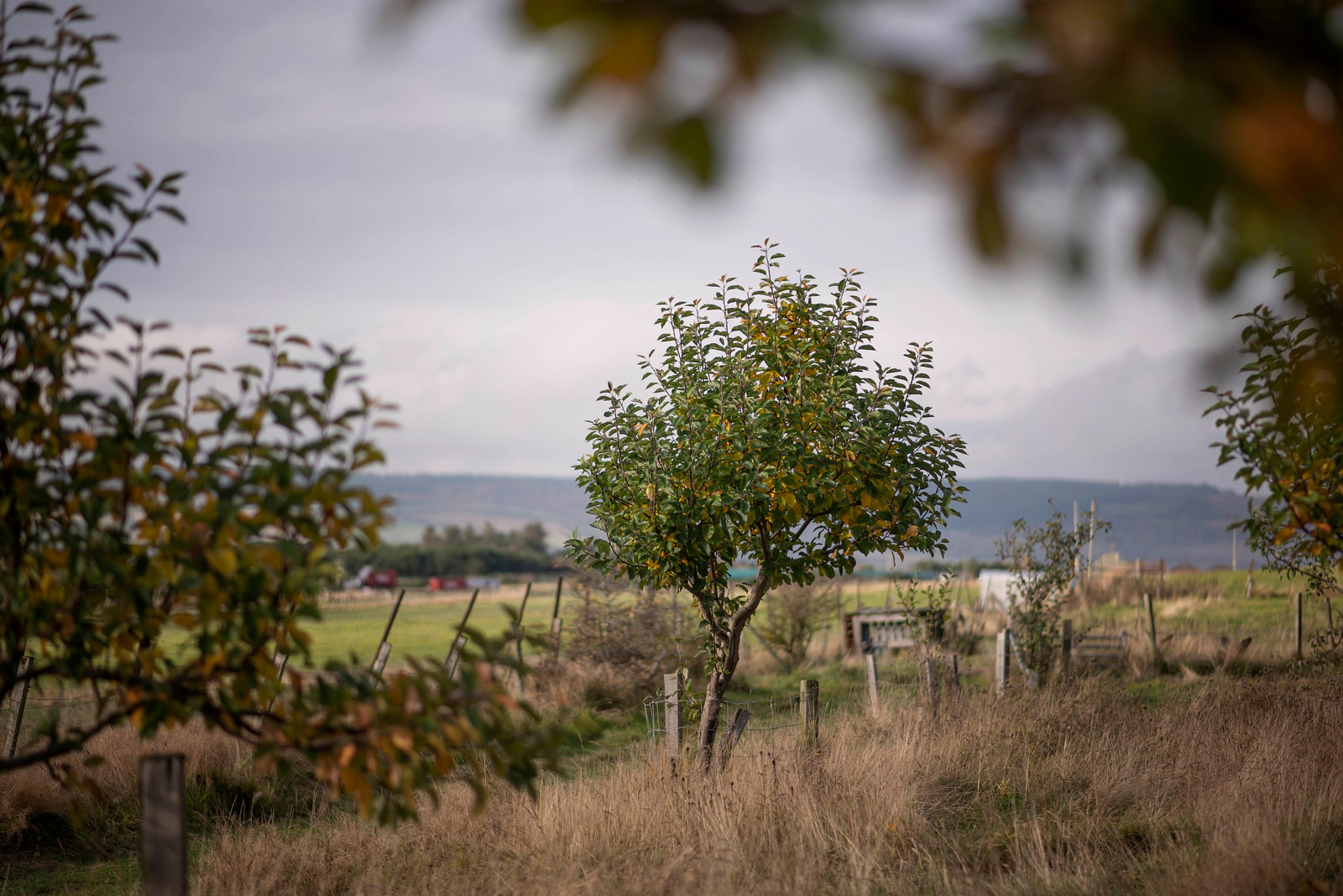Good Food Nation
From Donnie Macleod, Macleod Organics
Scotland’s Good Food Nation consultation

The Scottish Government is seeking views on its first Good Food Nation Plan. Six Outcomes represent what a sustainable food system in Scotland would be in a Good Food Nation.
A vision for Scotland to be a Good Food Nation, where people from every walk of life take pride and pleasure in, and benefit from, the food they produce, buy, cook, serve, and eat each day. The Good Food Nation (Scotland) Act 2022 provides the legislative framework that enables us to take steps towards realising our vision.
Here are some of my thoughts.
The way we farm should be the starting point.
Organic Agriculture is recognised throughout the world as a system that includes all six of the desired outcomes as core principles. Farming has to be fundamental to a Good Food Nation and although it is included in parts of the consultation further on, the way we farm should be the starting point. ‘Making, processing, selling, buying, eating’ is missing the essential link to production from the land.
Organic Certification should be at the forefront when considering Targets and Indicators. The target to increase the amount of organically certified land is excellent (the plan proposes doubling organic farmland in Scotland by 2016) but that should include metrics on the amount of organic food produced from that land and also how much organically certified food is consumed by the Scottish population.
The 6 Outcomes
1 Everyone in Scotland eats well and can easily get safe, healthy, affordable, environmentally friendly food.
Organic produce, meat and dairy has much more nutrition and no added chemicals, while organic farming practices are sustainable and can help to reverse climate change. An increase in sustainable food production will provide Scotland with more affordable, healthy, homegrown foods available to all, lower diet-related health issues (no pesticides), and contribute to our forward-thinking food culture.
Organic food affordability must be addressed by our government by supporting all parts of the Organic Food Chain. Much can be done to reduce the costs throughout the organic food system by way of funding organic certification, grants and training, subsidising local markets stall costs, etc.
Indicators and targets must be set to address the inequalities that currently exist. An increase in consumption and a reduction in price differentials are just two targets that should be included.
2 Scotland’s food system is good for the natural environment, the climate, wildlife, and animal welfare.
Organic farming certification addresses environmental issues better than other systems but with regard to a Good Food Nation there needs to be a connection made to food production. While managed organic land addresses those four issues, the plan must include Targets and Indicators on how much organic food is produced and what percentage reaches the nation’s plates. Support for the whole Organic Food Chain is necessary.
Our soil is the foundation for change from the ground up
- Healthy soil contains aggregates that help it bind together, preventing erosion and run-off. It can hold more water, so plants fare better in drought.
- It contains more bacteria and fungi that help plants fight diseases and pests. And healthy soil also contains more minerals and nutrients that feed plants.
- Healthy soil is the foundation of our global food system, but currently, it’s at risk. The United Nations reports that using current practices, we have fewer than 60 years of farmable topsoil remaining.
- Every organic farming practice contributes to healthy, resilient soil that can support abundant life both below and above ground, making organic farming a powerful tool for soil conservation.
3 Scotland’s food system helps everyone to have good physical and mental health.
The nutrient content and lack of chemical residues in organic food has been understood for many years to have a bearing on human health. It has also been proven during a trial at a prison that changing the inmates diet to an organic one has improved the adult inmates mental health and behaviour. Also children’s mental health can be improved by consuming food that has less chemical residues in it.
Targets and indicators need to include the consumption of organically certified food.
4 Scotland is known around the world for high-quality food. Our food and drink industry is successful and forward-thinking. It is an important part of the national and local economy. It supports and creates good jobs.
Organic food production and distribution has always provided more jobs, and employment is part of the certification process.
A target for the overall value of the Organic Marketplace should be set and indicators identified.
5 Scotland has a good food culture. Scottish people are interested in and educated about good and sustainable food.
This must include a specific reference to Organic and other Certificated systems including identification and meaning of symbols. Recognition of why the use of the term ‘Organic’ has legal status across the world.
6 Decisions we make in Scotland are good for food systems here and around the world. We share and learn from what other countries are doing.
Learning and sharing from the experiences of other countries has to be fundamental to our strategy. I believe that, although the other five outcomes are important steps, this Outcome (Number 6) is the most important if Scotland attempts to be recognised as a Good Food Nation.
The current world leader is Denmark and their support for the organic sector shows us what has worked and steps that we can take.
Reporting on the Soil Trade Association Conference last year, Judy Beveridge writes:
“The Danish government covered the certification costs for farmers to convert to organic. As a result, today 13% of Danish farmland is organic with a target to increase this to 30% by 2030. In Denmark organic is mainstream with discount stores leading the way. The Danish equivalent of Aldi carried out a simple but effective marketing campaign highlighting the cruel lack of space given to an intensively farmed pig compared to the outdoor freedom demanded by organic standards. Result? Organic Danish pork became the norm.
Meanwhile Organic Denmark confess that the amount of land for growing animal feed is too high. Public procurement of food must be a minimum of 60% organic (hospitals insist on 90%!) and as a result (due to cost) Danes are learning to love plant-based meals. Not bad for a nation famous for Danish bacon!”
Here is a quote from the Organic Denmark website.
“The Danish advantage is that we have many organic brands and a large organic range. We must continue to achieve this by making consumer demands, supporting the retail sector and securing political backing – for example by reducing VAT on organic products as proposed by the European Commission.”
The report ’The World of Organic Agriculture’ shows that organic farming is growing worldwide. In 2021, sales of organic food reached EUR 125 billion compared with EUR 120 billion in 2020. Organic agricultural farmland also increased in 2021 to 1.6 per cent of the total global agricultural farmland.’ Currently Denmark is at 12%, Austria at 11.5%, Switzerland at 11.2%, Luxembourg and Sweden next at under 10%.
There is no reason as to why Scotland should not include an organic market share target that would merit a mention in the world of organic agriculture leading nations.
– Donnie
Have your say!
PLEASE READ THE CONSULTATION DOCUMENTS AND RESPOND BY 24 APRIL 2024
Good Food Nation Plans
The Act places duties on Scottish Ministers, local authorities and health boards to produce Good Food Nation Plans. These Plans will set out the main outcomes to be achieved in relation to food-related issues, the policies needed to do this and the measures that will be used to assess progress.
Take consultation
consult.gov.scot/agriculture-and-rural-economy/national-good-food-nation-plan/
Read more on Good Food Nation by Highland Good Food Partnership highlandgoodfood.scot/gfn/
